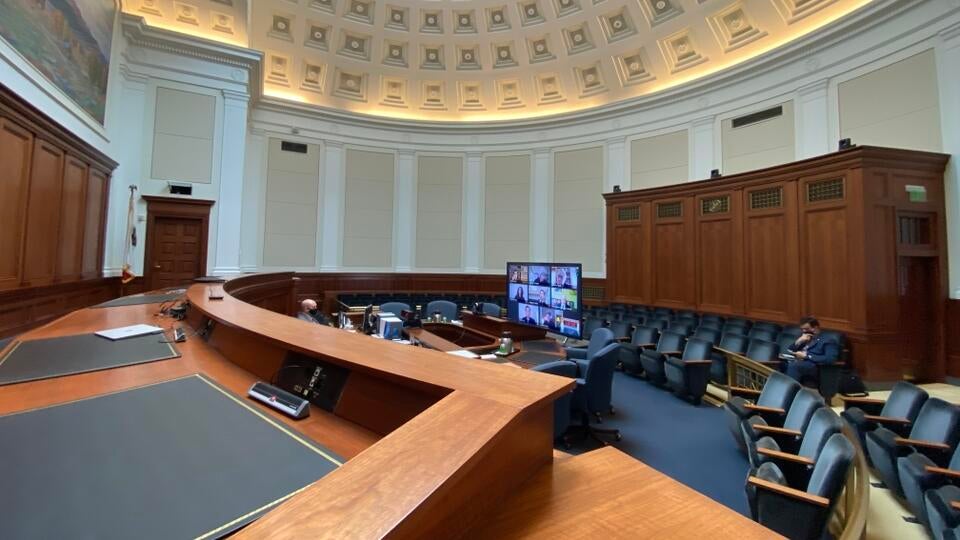Judicial Council to Receive Report on Remote Proceedings in Civil Cases
SAN FRANCISCO— The council at its Dec. 2 business meeting will receive a report on how courts can use remote proceedings in civil cases while also providing equal access to the process for all participants. Data collected over a period of seven months shows that courts held more than half a million remote proceedings in civil matters—more than 96% of the feedback collected from those remote users noted favorable experiences.
Enacted last year, Assembly Bill 177 directed the council to convene a working group to consider and make recommendations on:
- Statewide procedural and technical guidelines for remote services
- Case types and proceeding types appropriate to conduct remotely
- Ensuring court users fully understand their remote options
- Court reporter availability now and in the future
- Whether changes are needed to existing laws protecting the accuracy of the official verbatim record and preserving parties’ rights to appeal
The working group included judges, court executive officers, attorneys, court reporters, court interpreters, legal aid organizations, and court-appointed dependency counsel. In addition to its internal meetings, the group held an online public meeting (140 attendees) and received written comments to get additional input on the recommendations.
The legislation calls for the council to submit the report to the Legislature and Governor by Jan. 1, 2023.
Recommendations from Judicial Diversity Summit
The council will consider the final report from the 2021 Judicial Diversity Summit, “Stronger Together.” Held last year, the summit brought together representatives from the council, courts, and 15 affinity judicial and bar associations.
The report recommends the council consider increasing education for attorneys from underrepresented communities about the judicial appointments process, continuing judicial outreach to K-12 schools, strengthening mentoring programs for judicial officers interested in court leadership positions and appointments to higher courts, and expanding the collection of demographic data on the California judiciary by adding a nonbinary category for gender.
Other items on the December 2 council meeting agenda include:
Strategic Plan for Technology: The council will consider an update to the judicial branch’s Strategic Plan for Technology. The updated plan includes a new goal of promoting digital services that are accessible to all, regardless of location, socioeconomic status, language, physical ability, or technological access or experience.
Strategic Plan for Judicial Branch: The council will consider an update to the Strategic Plan for California’s Judicial Branch. The updated plan would make explicit the branch’s commitment to leverage diversity to foster an inclusive court system in which all individuals are—and feel—respected and engaged, and their contributions are valued.
Court Adoption and Permanency Month: Since 1999, the Judicial Council has recognized the efforts of California’s juvenile courts and their justice partners to find safe, stable, and permanent homes for every child in foster care. This year the council will hear from a Tribal Customary Adoption family, which allows an Indian child who is a dependent of the California state courts to be adopted through the laws and traditions of the child's tribe without termination of the rights of the child's parents.
Final Council Meeting for Departing Chief Justice
Chief Justice Tani G. Cantil-Sakauye in July announced she would not seek re-election as Chief Justice of California, which includes serving as chair of the Judicial Council. She concludes her term on January 2, after serving 12 years as Chief Justice and 32 years on the bench at all levels of state courts.
The complete meeting agenda and council reports are posted to the California Courts Meeting Information Center. A link to a live webcast of the meeting will be on the California Courts website on the day of the meeting.



